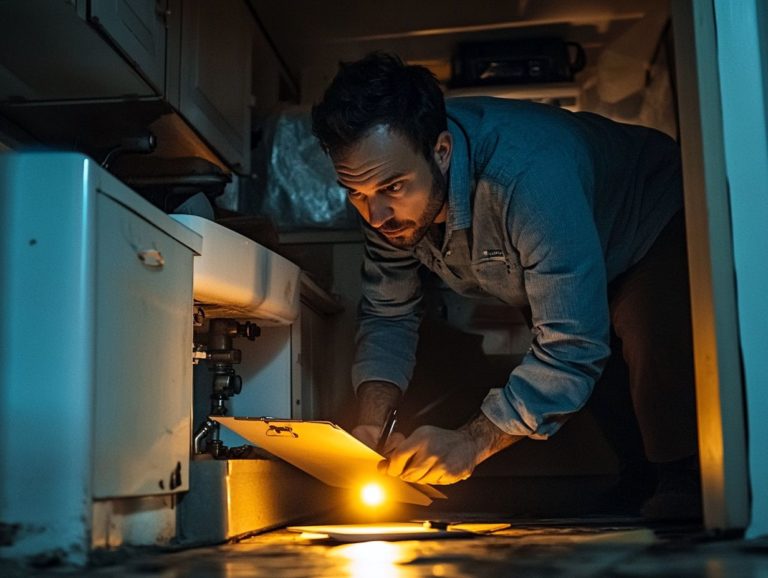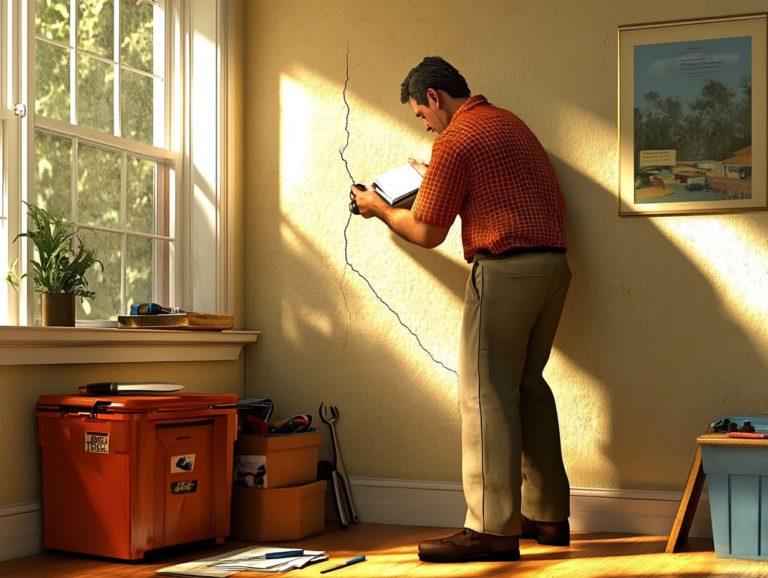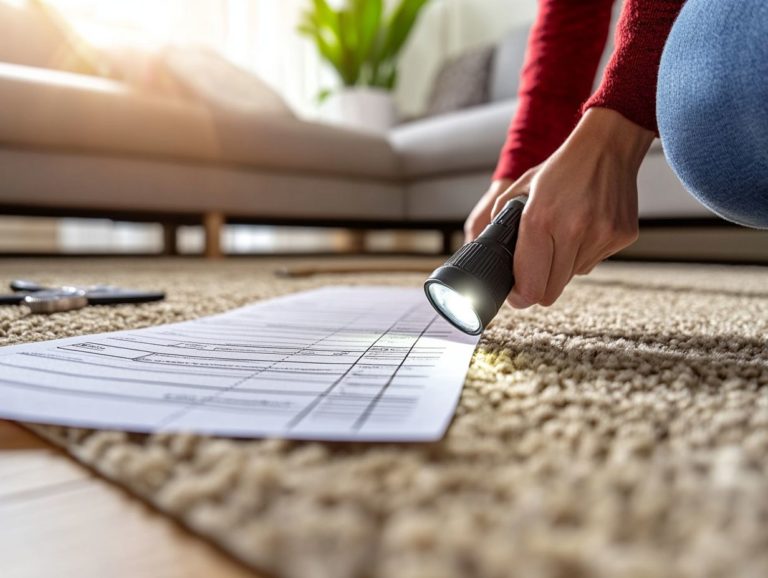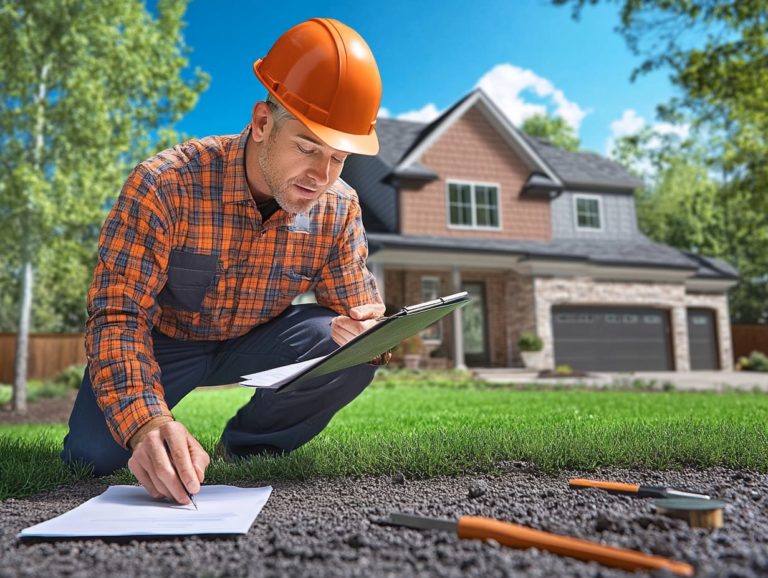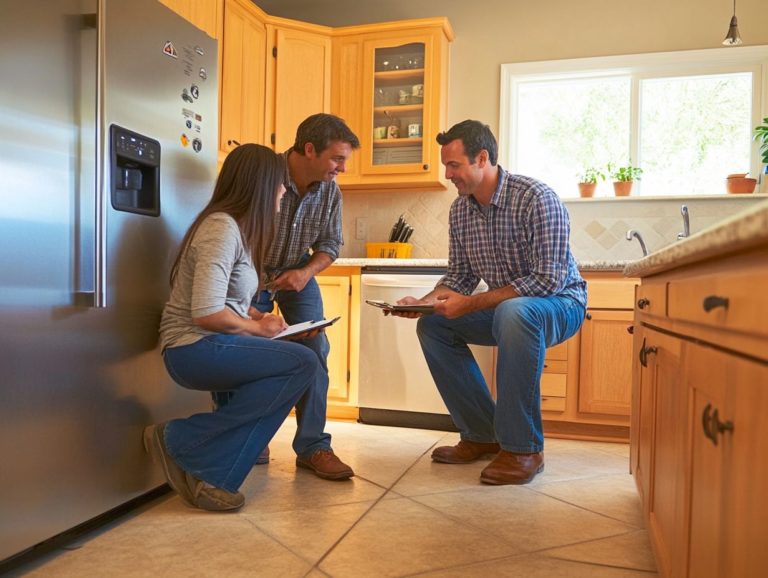The Benefits of an Independent Home Inspection
When it comes to buying or maintaining a home, knowledge is power. Home inspections protect your investment. They uncover potential issues before they become expensive headaches.
This article delves into the significance of home inspections, outlining what to expect during the process, the advantages of hiring an independent inspector, and common problems that may arise.
You’ll also find valuable tips on how to choose the right inspector to ensure your home remains in optimal condition.
Contents
Key Takeaways:

An independent home inspection provides unbiased assessments and expertise, giving homeowners peace of mind about the condition of their home.
Home inspections can identify potential problems, helping homeowners address them before they become costly and troublesome.
When choosing a home inspector, consider their qualifications, experience, and ask for references to ensure the best possible inspection.
The Importance of Home Inspections
Home inspections are a pivotal moment in the real estate journey, allowing you to make informed decisions and mitigate potential risks, ensuring that your investment aligns with your expectations.
By hiring an independent inspector for a thorough check, you can uncover safety hazards, structural concerns, and assess the overall condition of the property. This step highlights the importance of home inspections before buying and ensures you make an informed decision before moving forward with the closing process.
This proactive strategy boosts your confidence as a buyer and addresses the likelihood of expensive repairs and buyer’s remorse down the line, highlighting the true value of a thorough, unbiased inspection report.
Why Every Homeowner Should Consider an Inspection
Every homeowner should see a home inspection as a crucial step in safeguarding their investment and ensuring that the property remains in optimal condition, especially while navigating the complexities of the real estate market.
These inspections can reveal hidden defects that, if left unchecked, could lead to significant financial setbacks. Issues like plumbing leaks, electrical malfunctions, or structural weaknesses can escalate over time, resulting in costly repairs that strain your budget.
A thorough inspection report serves as an invaluable tool for assessing your home insurance needs or estimating repair costs, giving you the information needed to make informed decisions that protect your financial interests.
By enlisting an independent inspector, you receive an unbiased, expert evaluation you can trust, highlighting the importance of thorough home inspections. This allows you to plan effectively for necessary maintenance or upgrades to your property.
What to Expect from an Independent Home Inspection
When you choose an independent home inspection, anticipate a thorough and methodical evaluation of the property, highlighting the importance of comprehensive home inspections.
This process includes a meticulous assessment of safety risks, the strength of the building, and compliance with local safety rules.
The Process and What is Included
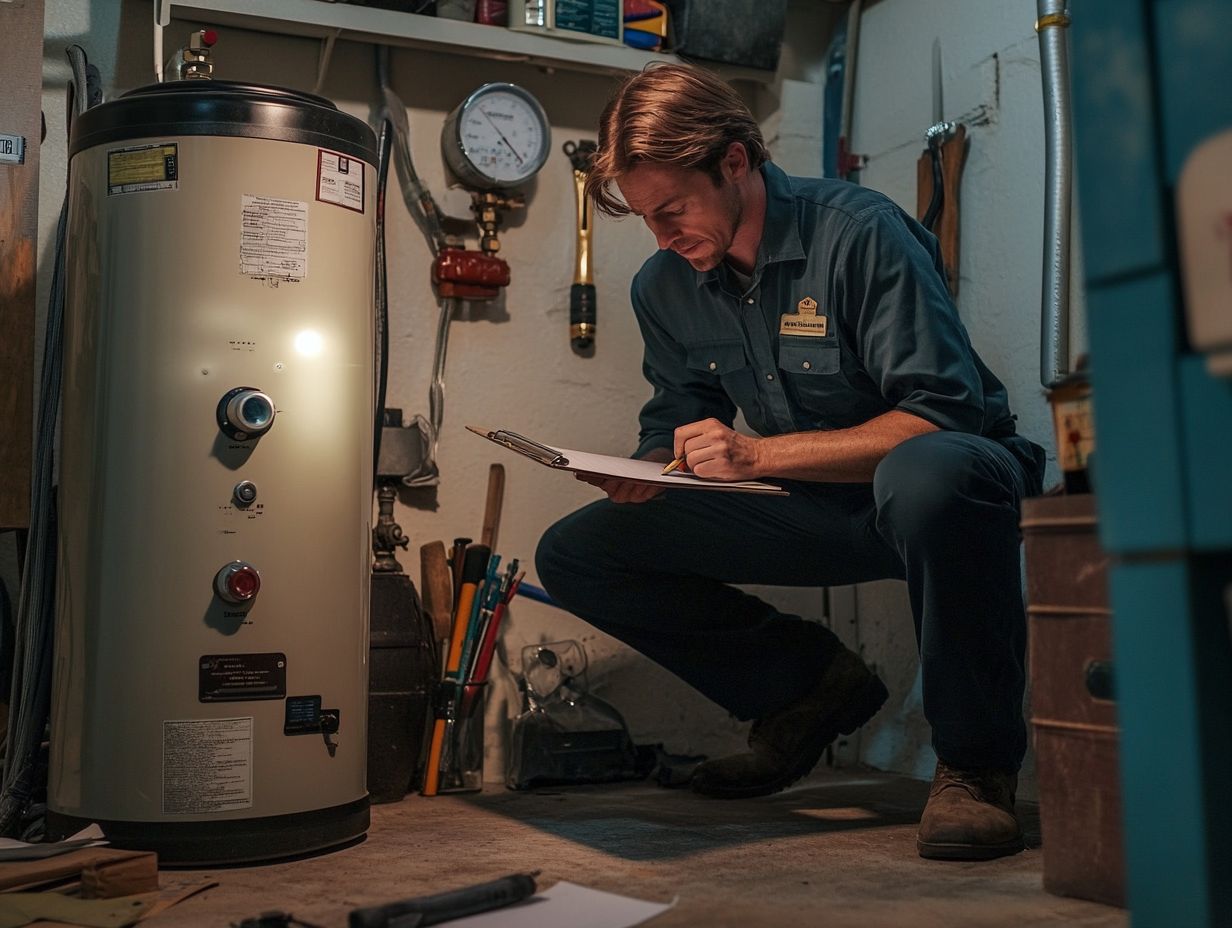
The home inspection process is a meticulous journey. You engage an independent inspector to conduct a comprehensive assessment of your property. This evaluation covers various aspects, including the strength of the building, safety risks, and the condition of vital systems like HVAC.
As soon as the inspector arrives, they begin a systematic examination of both the exterior and interior spaces, looking for signs of wear, potential hazards, and compliance with safety codes. The inspector checks the roof, foundation, plumbing, and electrical systems.
Every detail is documented in an inspection report, which highlights immediate concerns as well as potential long-term issues that could emerge if left unaddressed. It’s essential to be aware of the duration of this process; longer inspections often indicate a more complex property, potentially leading to higher future maintenance costs and increased safety risks for you as the homeowner.
The Benefits of Hiring an Independent Home Inspector
Hiring an independent home inspector offers a wealth of advantages. You’ll receive an unbiased report, providing you with crucial insights on the benefits of a home inspection, helping you make informed decisions about your potential new home.
This insight sharpens your negotiation skills and helps you pinpoint essential repairs that may be needed for the property.
Unbiased Assessments and Expertise
An independent inspector’s unbiased assessments are essential for giving you a clear understanding of a property’s condition. This ensures you receive expert insights into any underlying issues that might not be apparent to the untrained eye, making understanding the importance of home inspections crucial in the buying process.
These professionals bring a wealth of experience and knowledge, allowing them to identify potential hazards like structural defects, plumbing issues, or electrical concerns.
Their careful inspections often result in clear reports that show important findings, which can significantly sway your decisions during negotiations.
For example, if hidden mold or pest infestations come to light, these inspectors can provide invaluable information that may lead to price adjustments or even the withdrawal of an offer.
By relying on the expertise of independent inspectors, you can safeguard your investment and navigate the intricate world of real estate with assurance, understanding the importance of home inspections for buyers.
Common Issues Found During Home Inspections
Home inspections often reveal a range of common issues, which could be anything from minor repairs to serious safety concerns.
These may include structural problems, pest infestations, and HVAC system malfunctions all of which can drastically affect your property’s condition and value!
Address these findings to keep your investment safe.
Identifying and Addressing Potential Problems
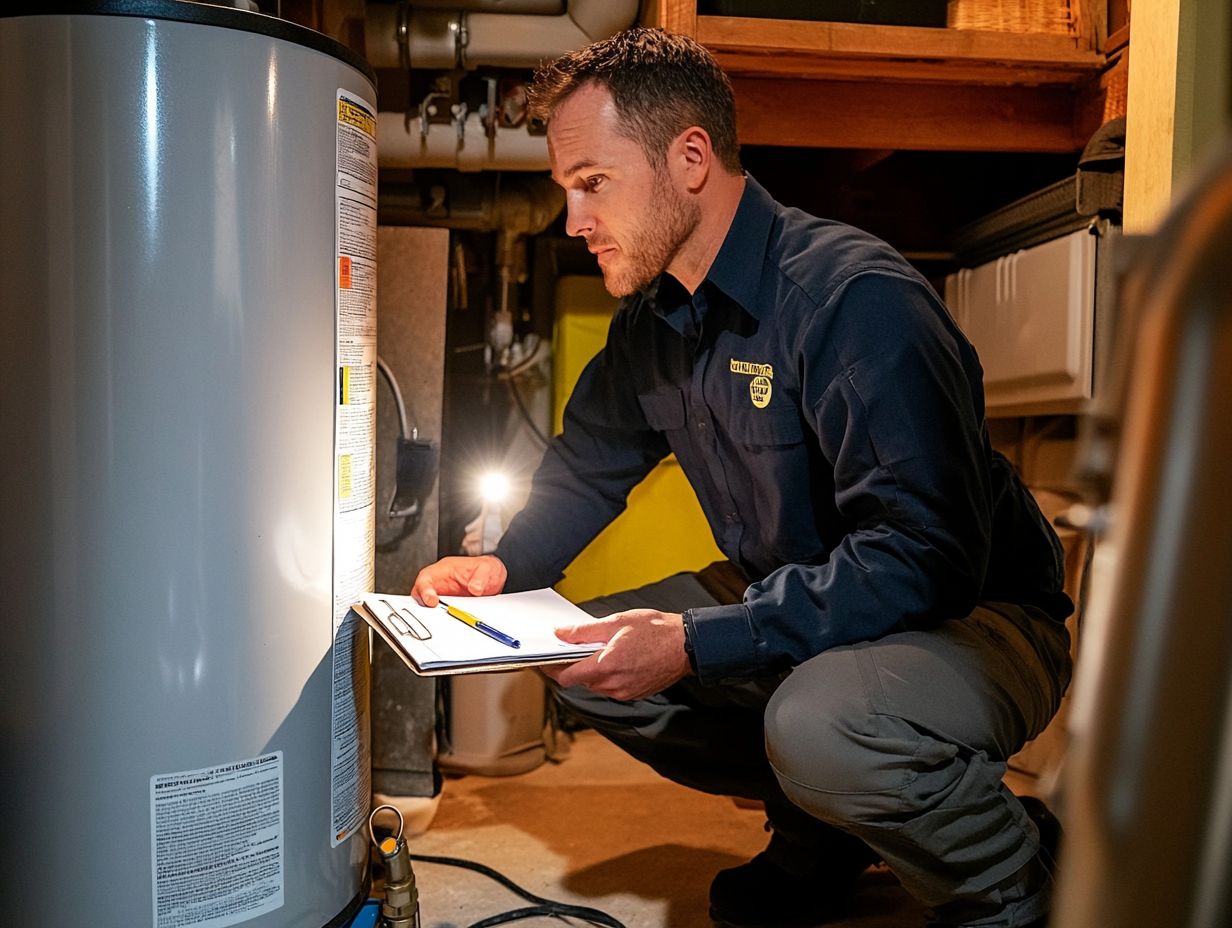
Identifying and addressing potential problems during a home inspection is crucial for averting future financial pitfalls.
Issues like mold infestations and structural defects can escalate rapidly if left unattended.
By actively engaging in this process, you can better safeguard your investment and ensure the safety of your living environment.
Knowing what’s in your inspection report helps you prioritize repairs and mitigate risks before they worsen.
This insight not only keeps your property’s value intact but also creates a safer, more comfortable home!
With clear insights into potential hazards, you can make informed decisions about necessary improvements and systematic maintenance, ultimately contributing to your long-term peace of mind.
How to Choose the Right Home Inspector
Selecting the right home inspector is vital for securing a comprehensive and trustworthy assessment of your property.
Your choice affects inspection fees and the quality of services rendered.
Therefore, consider local referrals and the inspector’s qualifications.
Your choice will ultimately shape the experience and outcomes of your property evaluation.
Factors to Consider and Questions to Ask
When you re on the hunt for the right home inspector, consider several factors and ask the right questions to ensure you select a qualified professional who aligns with your specific inspection needs.
Start by evaluating the inspector s credentials check their certifications and licenses, and assess their experience with the types of inspections that matter to you, whether it s residential, commercial, or older properties.
Understanding local building codes is essential, as compliance can vary significantly by region.
During your interviews with potential inspectors, don t hesitate to ask about their methodologies.
Find out how they conduct inspections and what tools they use during inspections.
It s also wise to inquire about their fees make sure there are no hidden charges lurking in the fine print.
Request a detailed list of services they offer, such as thermal imaging or radon testing, to ensure their expertise aligns perfectly with your needs.
Frequently Asked Questions
What is an independent home inspection?
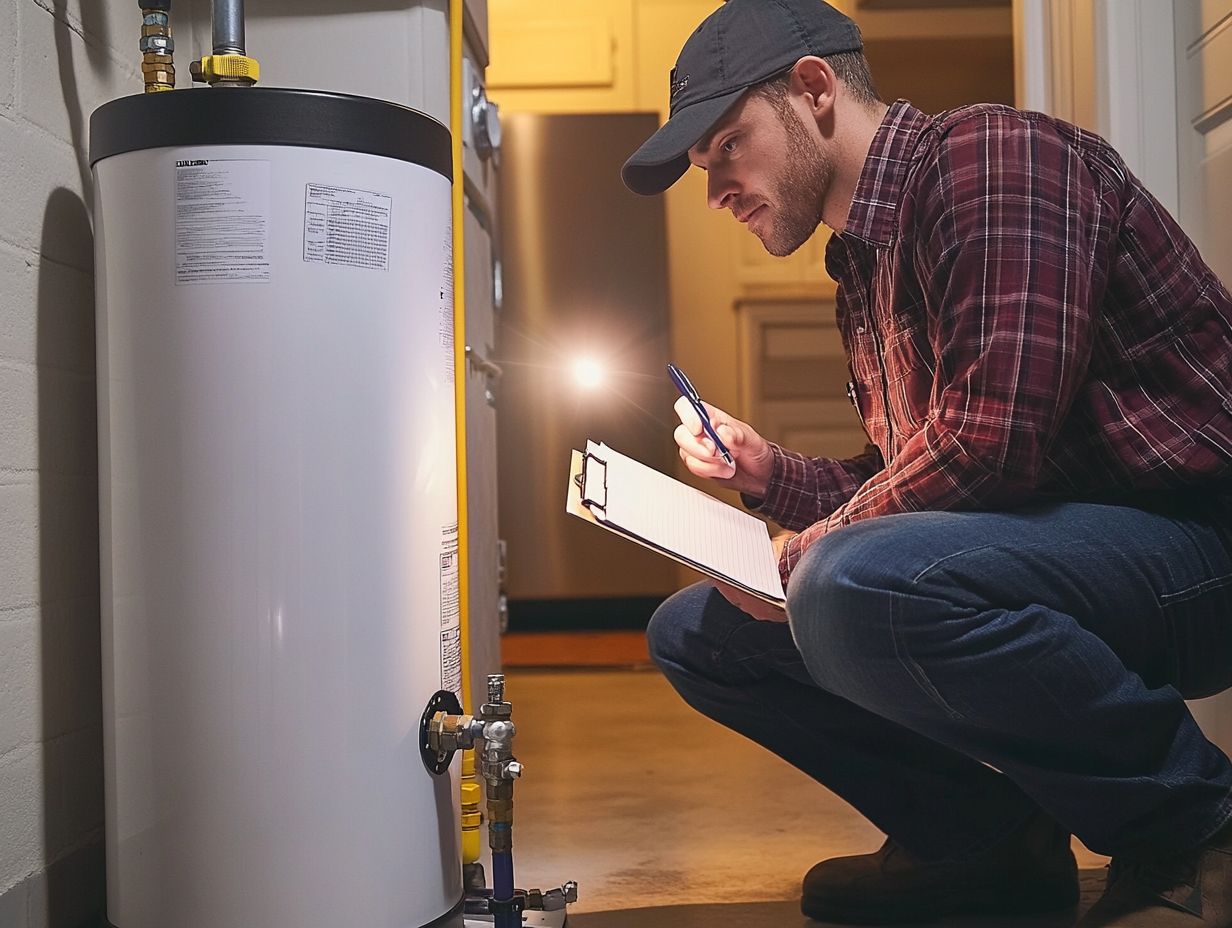
An independent home inspection is a thorough evaluation of a residential property conducted by a trained and certified professional who is not affiliated with any real estate agent or company. This type of inspection is typically performed before a home is sold or purchased, and it provides an unbiased assessment of the property’s condition, highlighting the importance of pre-purchase home inspections.
Why should I get a home inspection?
There are many benefits to getting a home inspection, including:
- Identifying potential issues and hazards that may not be immediately apparent. This gives you a better understanding of the property’s condition.
- Providing leverage for negotiating a lower price or requesting repairs from the seller.
- Giving you peace of mind and confidence in your decision to buy or sell a home.
Who should get a home inspection?
Anyone buying or selling a home should consider getting a home inspection. This includes first-time homebuyers, seasoned homeowners, and real estate investors.
You ll want to consider this if you re planning any renovations or major repairs.
How long does a home inspection take?
The length of a home inspection can vary depending on the size and age of the property, as well as any potential issues discovered. On average, an inspection takes 2 to 4 hours.
What does a home inspection cover?
A home inspection typically covers the following areas:
- Foundation and structural components
- Roof and attic
- Plumbing and electrical systems
- Heating and cooling systems
- Exterior and interior walls
- Insulation and ventilation
- Windows and doors
- Appliances
- And more, depending on the property
Can I attend the home inspection?
Make sure to attend the inspection to seize this valuable opportunity! You can ask questions, address any concerns, and get a better understanding of the property’s condition.
This can also help you identify potential maintenance or repair needs in the future.

